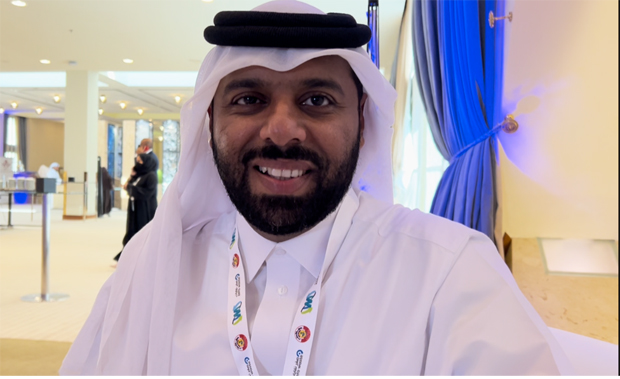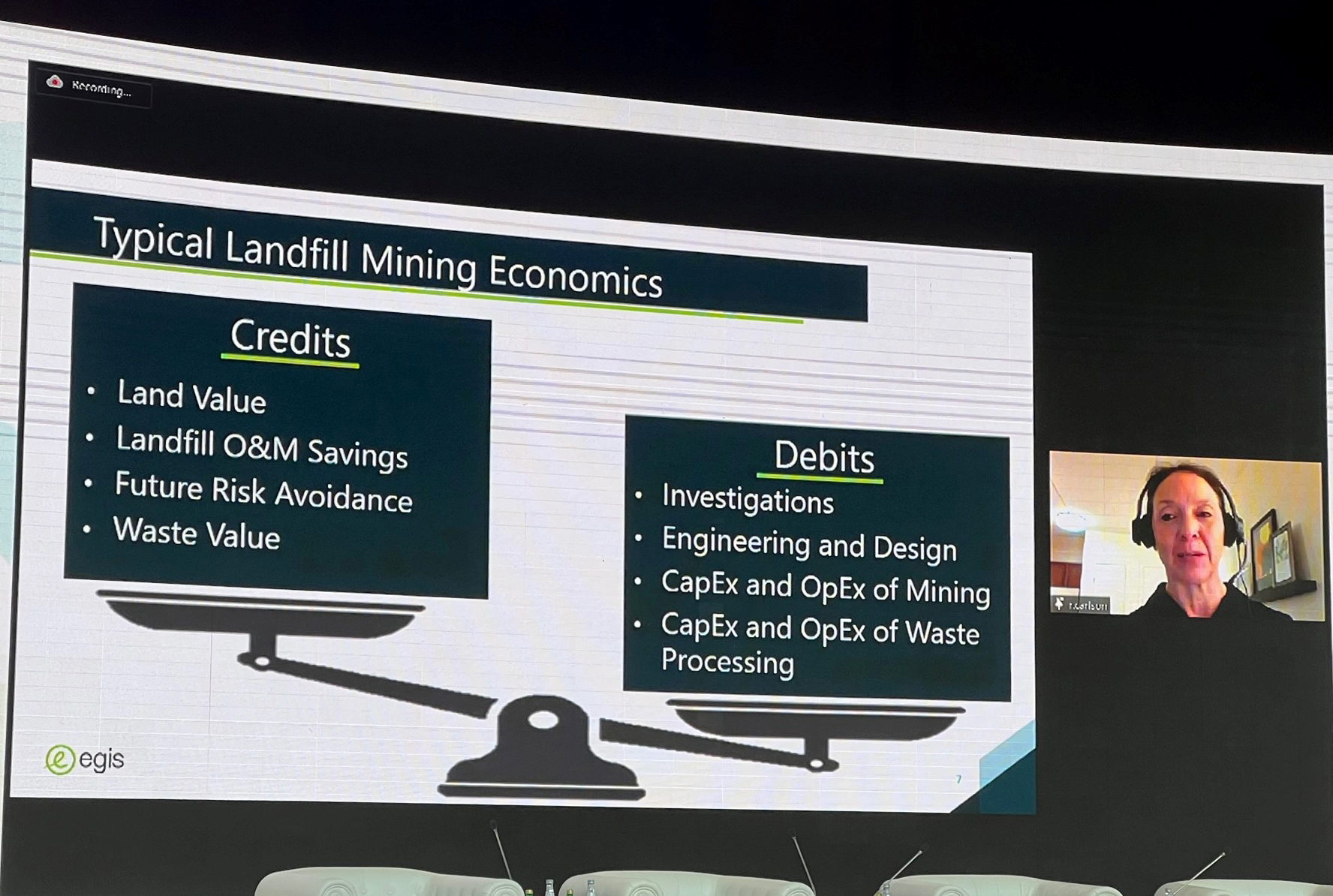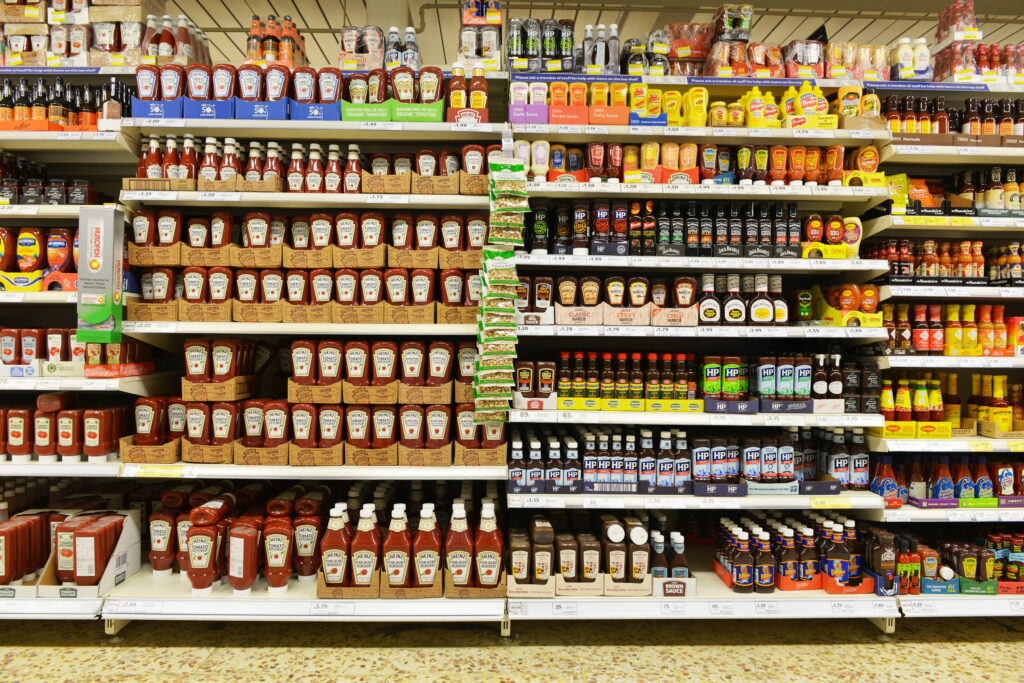While the UK currently is seeing a lot of activity relating to recycling, ranging from plans for a new paper mill in Wales through to the development of fuels from waste and specifically, waste plastics, sometimes the level of ambition to move further appears rather slow.
Contrast this with Ministers and officials in Qatar where although the country is still to fully develop recycling at household level, there is a real ambition and desire to move quickly.
This pace of activity is highlighted by the Director of the Waste Treatment Department at the Ministry of Municipality, Eng. Hamad Jassim Salem Al Bahar. He speaks of several reasons for hosting the conference in Doha, with one a desire to learn more about new technologies that are on offer to help with the recycling of materials and final treatment.

Recycling
Mr Al Bahar also notes the Department has a new “character” with the aim to boost recycling. This has seen the launch of the 18R Campaign, unveiled at the conference, to promote concepts such as recycling, reuse and reduce, and legal regulations to help with sustainable development. And, the Department has also set aside industrial land to be used by businesses operating within the circular economy to help them grow. Plans are also in hand for a new state-of-the-art landfill with the tender process ongoing, although the overall aim is to reduce the landfilling of waste.
Mr Al Bahar’s positivity for Qatar’s move towards zero waste and a circular economy was reflected by a range of speakers who spoke on different themes relative to the State’s environmental progression.
The second day of the conference ranged from aircraft fuels through to organics.
Biofertiliser
Shafeeq Mohammed, managing director of Agri Qatar explained how the company produced the “only biofertiliser in the Gulf region.” It takes green waste from the domestic waste authority for composting.
Home composting appears relatively new to Qatari residents and Agri Qatar has developed a Bio Box home composter unit, for items ranging from cuttings, through to coffee grounds and cooked rice. Users are given composting backeeria to sped up the process along with a coco substrate which provides are rich carbon source.
Mr Mohammed declared: “The world is getting very small; the world is our home. We need to keep our home clean, we need to recycle: this is your duty.”
Landfill mining
An interesting presentation came from consultant Randi Carlson of Qatar-based Egis who spoke about landfill mining. She said that waste is excavated and then stored in a temporary location and then the material has to be processed to find as many uses as possible.

Status
Randy said that the status of landfill mining “is not 100%, it can be a tool to phase out landfills, but is not a tool on its own.”
She estimated that 75-80% of material goes back to landfill in most cases of landfill mining and with enhanced processes it can be more like 50%. “You need realistic expectations,” said Ms Carlson. “Your landfill contents, it is not to say there isn’t a value but landfill mining economics show that land value is the big one. Some waste values can be high, especially with electronics, but the metals need to be extracted and unfortunately there can be quite a cost.”
Aircraft fuels
The conference session also heard from Abdulaziz Altameme, assistant manager of onshore facilities at Qatar Energy, Qatar.
He explained how waste to fuels will play a part in the aircraft fuels sector with conversion processes converting the waste to sunstainable aviation fuel. The use of sustainable fuels has the potential to reduce carbon emissions by 80%, said Mr Altameme, although there is a cost challenge, demand will exceed 400 million tonnes by 2030.
He highlighted targets set by governments including the UK which has a requirement of 2% by 2025 and 10% by 2030.
Currently a hydrogenation and fractionation process is used with the fuel produced by Neste, ENI and World Energy.
More reports on letsrecycle.com
Qatar ministers back ‘zero waste economy’ – letsrecycle.com
Qatar aims high with circular economy plan – letsrecycle.com









Subscribe for free